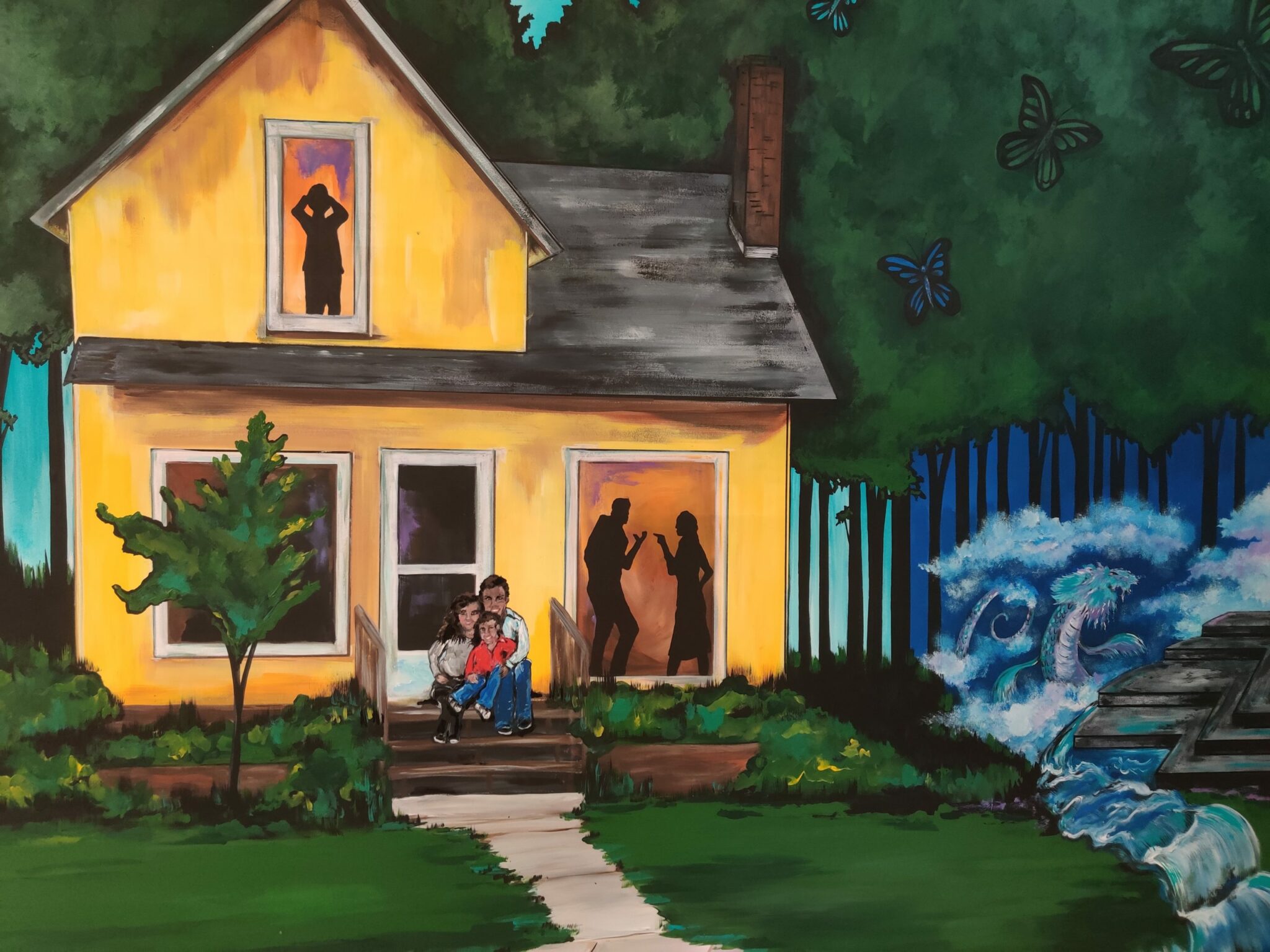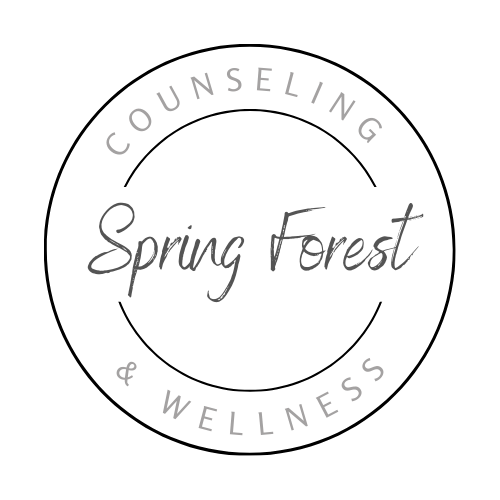Play Therapy at Spring Forest Counseling
Play is as important to human happiness and well-being as love and work. Play is a fun, enjoyable activity that expands self-expression, self-knowledge, and self-efficacy. Play is the language of children, and often they communicate more during this time than in more traditional talk therapy. Play therapy can promote cognitive development, provide insight, and help resolve inner conflicts or dysfunctional thinking.
Frequently Asked About Play Therapy
There is an extensive list of toys and games that the counselor may use to create an ideal play environment for children to open up and navigate their feelings. Some include:
- Dolls, stuffed animals, and action figures
- Puppets and masks
- Role playing
- Water and sandbox play
- Building blocks and construction toys
- Arts and crafts
- Storytelling
What is play therapy?
 Play therapy focuses on helping young patients navigate emotional and behavior challenges in their lives. This type of therapy involves observing patients play with different types of toys or games, and encouraging them to play and speak freely. Spring Forest Counseling offers non-directive play therapy. While therapists may gently guide young clients in playing, they do not specify the games or toys they play with. We prefer to let them choose whichever game or toy catches their eye. This freedom to choose helps children feel more comfortable and open towards speaking with our therapists.
Play therapy focuses on helping young patients navigate emotional and behavior challenges in their lives. This type of therapy involves observing patients play with different types of toys or games, and encouraging them to play and speak freely. Spring Forest Counseling offers non-directive play therapy. While therapists may gently guide young clients in playing, they do not specify the games or toys they play with. We prefer to let them choose whichever game or toy catches their eye. This freedom to choose helps children feel more comfortable and open towards speaking with our therapists.
Under the guidance of a licensed child therapist, play therapy can help children resolve underlying emotional issues. Our caring counselors for play counseling understand that developing minds are learning to process their feelings and often need guidance on how to act on those feelings. To learn more about the play therapy and child therapy services offered here at Spring Forest Counseling, feel free to call us at any time. Schedule an appointment with our compassionate child counselors today and see the difference it can make for your child.
AREAS PLAY THERAPY CAN HELP WITH
Among the many types of child therapy, play therapy is among the most flexible, useful, and effective methods of counseling for kids. Providing an environment where children are allowed to freely play and talk can help with emotional healing. Children with behavioral obstacles often benefit from play therapy as a way to find triggers to their behavior and learn how to cope with those triggers differently.
This type of counseling for children can help them find the words to express their emotions and find solutions to barriers they experience during play time. By having the freedom to play without too much direction, children often find the solutions they need to these barriers on their own, encouraging growth and development.
Common Signs That a Child May Need to Talk with a Child Counselor Include:
Engaging in power struggles at home, at school, or with groups of friends, refusing to take responsibility for behaviors/accusing others of being responsible for their actions, lashing out or isolating themselves after a divorce of the loss of a family member, excess worrying and anxiety, lack of motivation in school or to go and play with friends, and struggling to enjoy things that they used to love.
Benefits of Play Therapy
Play therapy for kids is an amazing way to provide professional counseling services to young minds. The relaxed and familiar atmosphere allows them to express their deepest feelings and emotions. With the help of Spring Forest Counseling counselors, they can gain a better understanding of their thoughts and true self without judgement.
Play therapy with children can help them with:
Taking more responsibility for their actions and behaviors
Developing problem-solving skills and creative solutions
Learning coping strategies to reduce anxiety
Developing self-acceptance & self-efficacy
Harnessing confidence about their abilities
Learning to experience, identify, and express emotions
Cultivating empathy for thoughts and feelings of others
Lifting their limitations on expression
Developing social skills and relational skills with family and peers
Improving their relationships, respect, and empathy for others
Training their motor skills
Addressing aggressive behavior
Improving eating habits
What to Expect From Play Therapy Sessions
Before we begin play therapy with children at Spring Forest Counseling, we perform an intake assessment for each patient. The information we gather here can help us gain crucial background information about our patient’s health, past behavior, family history, and more. After this, we conduct a pre-therapy session. Pre-therapy helps us determine each patient’s development levels — such as cognitive, social, emotional, behavior, and communication.
We form our treatment goals after the pre-therapy. During this stage, we work together with parents in identifying long-term and short-term goals. The goals we determine would help our counselors in guiding the conversation and assessing improvements. Then we begin the observation of play trends in our patients. We also make sure to observe any changes in mood or behavior when playing. This helps us understand the children better and offer the right guidance. We base our treatment plans on the observations we make. These observations also help our counselors determine which moods and behaviors to engage more for better counseling results.
Therapy and Your Privacy
The therapists at Spring Forest Counseling respect your privacy. The information shared in a play therapy session is strictly confidential. The relationship between the counselor and the family is based on trust, compassion, and respect, so that each individual feels comfortable in the therapy environment.
To learn more about family therapy and to talk with a professional counselor in the Lansing, Michigan area, Spring Forest Counseling today.
Play Therapy at Spring Forest Counseling
Spring Forest Counseling offers professional play therapy for kids in the Lansing, Michigan area. If you have any questions or clarifications, we urge you to contact us. Our experienced counselors are committed to providing compassionate and non-judgmental therapy services to anyone who may need it. Call us today at (517)-507-5892 to learn more about how play therapy sessions may help you or your child or to schedule an appointment.
For more information on play therapy and child therapy, or to talk with the child and family therapists at Spring Forest Counseling, contact us below. We offer child therapy and play therapy in the Lansing, MI area as well as online.
